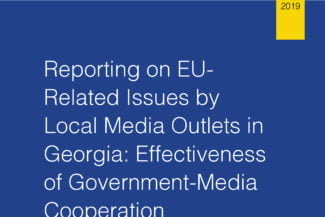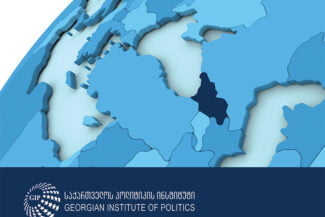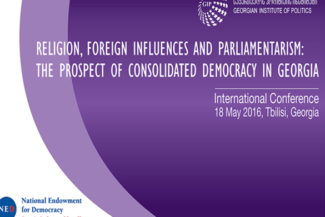11-12-2019
Originally posted by Institute for European Politics (IEP)
There is a long tradition in Georgia of reforming the electoral system. Each government has tried to adjust the system in a way that would help to guarantee the preservation of its own power. In June 2019, against the background of public protests, the current ruling party, Georgian Dream (GD), promised that it would amend the constitution in order to hold the 2020 parliamentary elections with a fully proportional voting system, including a natural barrier.
With that announcement, it seemed that the Georgian political class had finally moved to ensure the advancement of procedural democracy in the country. However, the tables were turned on 14 November 2019, when the bill on constitutional amendments failed to pass at the first hearing. Feeling deceived, citizens hit the streets and started protesting against this unexpected turn of events. Nevertheless, despite the public anger, the ruling party is not currently ready to make any concessions. On the contrary, there might be a risk of further democratic backsliding in Georgia.
Why are electoral procedures important in the Georgian context?
Most people would agree that the electoral system is of vital importance to a well-functioning democracy. While there is no consensus that any one voting procedure is superior, in the Georgian case there are convincing arguments for why the country should move to proportional elections and abolish the majoritarian system, which is essentially “first-past-the-post” with a 50% threshold.
Currently, Georgia has a mixed voting system: 77 members of parliament (MP) are elected through proportional party lists, whereas 73 MPs come from single-mandate majoritarian districts. This system can lead to a situation where a party that does not have the support of the majority of voters (in the proportional voting segment) may nonetheless win a majority in the parliament. In fact, this happened in the 2016 parliamentary elections: the GD received 48.7% of the popular vote, but because their candidates won in 71 out of 73 majoritarian districts, the GD gained 115 parliamentary mandates out of 150 total seats.
Why does the mixed electoral system not work in Georgia?
The imbalanced result of the 2016 election alone is sufficient evidence that the Georgian electoral system is flawed. Yet there is another, arguably more important problem with the majoritarian system: those MPs who gain their mandate through such a vote tend to be less active than those who reach parliament via party lists. All too often, directly elected MPs seek a parliamentary mandate in order to ensure that their business interests are protected. It appears that they are repeatedly successful not because of their personal popularity and integrity but because of their ability to control power networks in their districts. Indeed, they often switch parties depending on who is in the government to ensure that their influence is maintained. Thus, the majoritarian vote seems to favour the incumbent party and its preservation of power.
Is there a risk of further democratic backsliding?
As if the failure to amend the electoral code was not enough of a setback, majoritarian MPs from the GD have decided to seek reform in the other direction. They are working on a bill to transform the mixed electoral system to a fully majoritarian voting system. This may sound like a lost cause from the very beginning, given that the constitution guarantees a move to a fully proportional vote from 2024, yet it could also turn out as a smart plan.
On 25 November, Kakha Kaladze, the secretary general of the GD, stated that the ruling party is unwilling to consider any new initiatives to amend the constitution, and that the parliamentary elections in 2020 will be held in accordance with the current mixed system. The best-case scenario for the GD would be to switch to the winner-takes-all majoritarian system. However, having threatened that some of its MPs are demanding a fully majoritarian system after 2020, the GD might try to “achieve a consensus”, amend the constitution again, and return to a mixed vote in 2024.
This second-best outcome would give them a chance to stay in power until 2028. Consequently, a deterioration of Georgia’s democracy in terms of concentration of power is a very likely scenario. That is why it is important that the country’s partners, such as Germany and the European Union, do not ignore these developments, but rather ensure that the GD agrees to a reform of the electoral system based on popular consensus.
Levan Kakhishvili – Policy Analyst, Georgian Institute of Politics (GIP)









